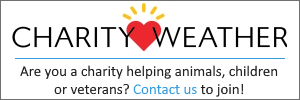A new proposal asks Wahkiakum Community Network Coalition (WCNC) to take a bold step in inclusion by recognizing the community as a safe place for autistic individuals. This would affirm Wahkiakum’s support for dignity, belonging, and neurodiversity at a time when national policies threaten those very values.
Submitted on Tuesday May 13, the proposal calls for a public statement and community outreach plan to protect local autistic residents from non-consensual data collection and harmful stigma. “This is a chance for Wahkiakum to lead the way in supporting its residents through compassion and care,” said author of the initiative Isha Sarah Snow. “It's about protecting rights by creating an environment where everyone feels safe.”
From Hillsboro, Ore., to Surfside Beach, SC, communities are creating autism-friendly spaces. Wahkiakum could be the first rural county in the nation to establish itself as a safe place for autistic and neurodivergent individuals at a county-wide level.
“This is about protecting privacy, supporting diversity, and promoting understanding,” said Snow. “Creating a more inclusive and tolerant environment benefits the entire community.”
Federal agencies have recently announced plans to collect data on autistic individuals through Medicaid and Medicare programs. Critics say these projects are ethically questionable and risk repeating past harms, including forced treatment and loss of autonomy.
“Wahkiakum can model a more compassionate path,” said Snow. “One based on trust and transparency.”
Key recommendations from the proposal include a public statement recognizing Wahkiakum as a safe place for autistic individuals; a listening circle to include autistic voices in shaping future local services and health initiatives; outreach to local organizations like schools, clinics, and libraries to discuss inclusion and future creation of sensory friendly spaces in the community; and the raised awareness of national data projects that may affect vulnerable residents.
“This proposal aligns with the same community care we already show in our mentorship programs, youth outreach, and trauma-informed services,” said Snow. “This isn’t political, it’s about making sure everyone belongs and modeling the grace and acceptance that Wahkiakum already embodies.”
Residents are encouraged to reach out to WCNC and share their support or questions.
To get involved or read the full proposal, contact Isha Sarah Snow at isha.snow@wsu.edu or visit her public research profile at ResearchGate.

Reader Comments(0)